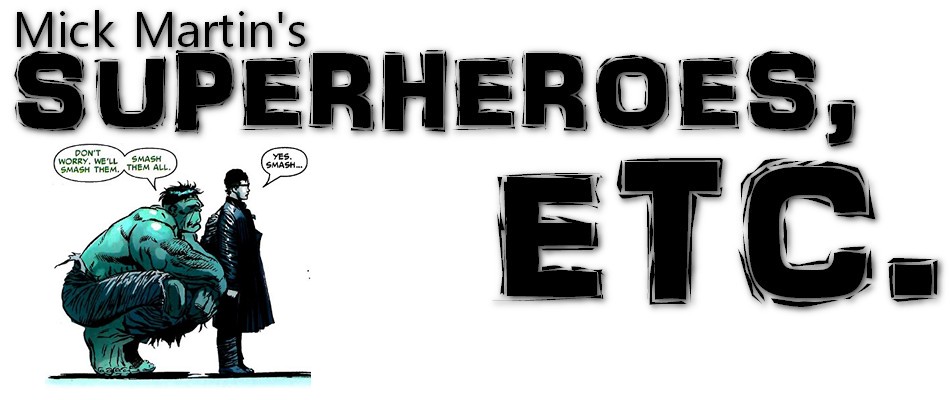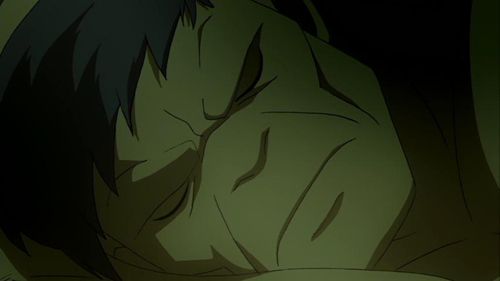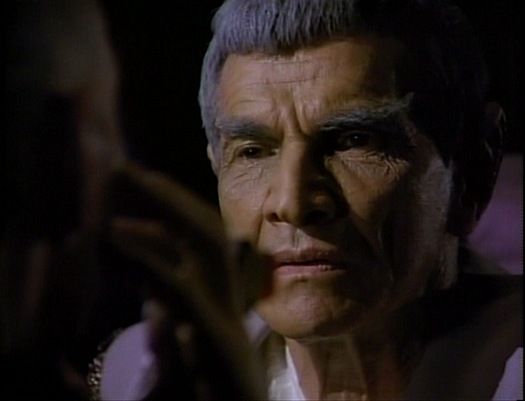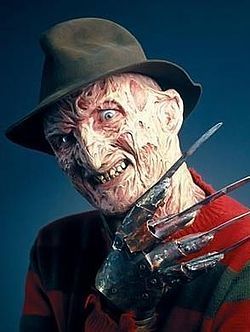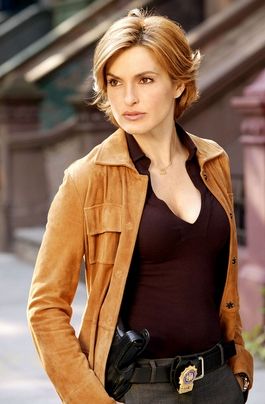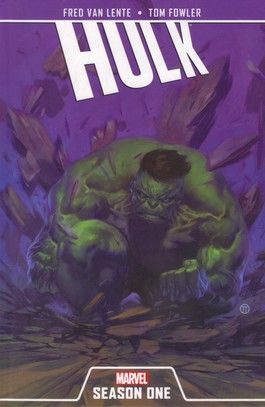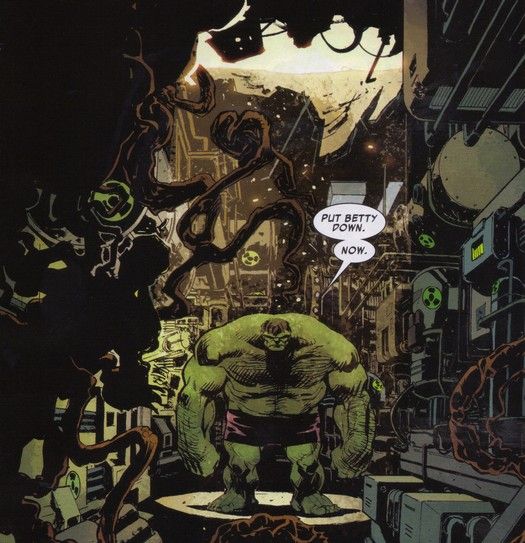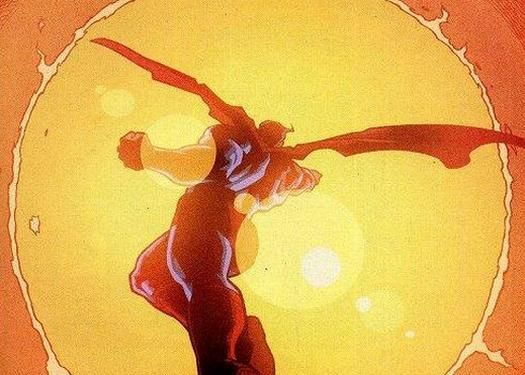Wednesday, August 29, 2012
This picture represents my hopes and dreams for this evening
I just wanted folks to know that it was my plan to update the blog at least a couple times this week. Unfortunately, a nasty case of insomnia derailed my attention. I woke up feeling rested Friday morning, and that was the last day that happened.
I am taking appropriate steps to stop my life from feeling like the first 20 minutes of Fight Club and I have not forgotten Superheroes, etc. But until I can wake up and truthfully say, "I did not spend a half hour in the early morning staring at my ceiling fan and believing it was involved in some kind of clandestine test subjected upon me by a criminal mastermind," the blog will regretfully fall outside the umbrella of my top priorities.
Wish me well. Wish me sleep.
Garmonbozia.
Wednesday, August 22, 2012
Learning to Love Star Trek: The Next Generation, Part 2
You can read Part 1 here.
Shortly before I let the blog go dark, I started a project to watch and review 21 specific episodes of Star Trek: The Next Generation recommended by Alan Doane. The idea came about after some twitter chatter between me, Alan, and Tim O'Neil. When Tim said he'd wanted for a while to write a Top 10 list of his favorite TNG episodes, I responded that I couldn't even think of 10 that were worth watching. Shortly afterward, Alan posted a list of 21 episodes of the series he thought were great and enjoyed "watching again and again." I took the list as a challenge. Since all the episodes are available digitally on Netflix, I vowed to watch all 21 and blog about them.
I didn't get very far and upon reflection that shouldn't be surprising. It seems usually, before I decide to fall off the face of the Internet once again, I make big promises about grand projects. Their bigness probably has something to do with my eventual choice to not finish any of them and hide in a corner for a year.
I doubt Alan, Tim, or anyone else would wag a finger if I chose to just forget about this and move on. After all, it's been nearly a year since I posted the first segment and that only covered the first four episodes. If this were Peter Jackson's The Lord of the Rings adaptations or The Hobbit (which, as I've been writing this, has no doubt been extended from a trilogy to 6 movies, one HBO mini-series, and some youtube shorts featuring Agent Coulson from Avengers), then a year's break would be expected, but it's kind of weird for something as relatively small in scale as my TNG reviews to have an annual rotation.
But the thing is, I notice I have these cyclical things. I mentioned, for example, how I always make big promises about big projects before I stop blogging? Well, I want to construct some new cycles, and one of them involves finishing what I started.
So here's Part 2 of my Not-Sure-How-Many-Maybe-Five-But-The-Existence-Of-Two-Part-Episodes-Makes-It-Tricky Part series, "Learning to Love Star Trek: The Next Generation."
"Yesterday's Enterprise"
Season 3, Episode 15
Directed by David Carson
Moments after the Enterprise investigates a temporal anomaly, everything changes. One second we're on the bridge with which we're familiar, watching Picard regard the view-screen thoughtfully and concernedly, consulting with Commander Worf. But before the opening credits the bridge becomes much darker, Worf disappears, and in his place stands Lt. Tasha Yar who met her end two years previous in "Skin of Evil." No one seems to notice anything's amiss except for Whoopi Goldberg's occasional character, the oracle/bartender Guinan. Whatever's gone wrong has something to do with the Enterprise C - the ship that preceded Picard's command - which emerges from the temporal anomaly battle-scarred, barely operational, and carrying a crew from 22 years in the past. We eventually learn that in the timeline we are witnessing, the Federation is locked in a long war with the Klingons and it is a war they are close to losing. The Enterprise C has something to do with it, and Guinan - who feels in her bones the wrongness of the timeline - desperately tries to convince Picard to send the Enterprise C back through the anomaly to the past, an act which would potentially fix the timeline but almost certainly act as death sentence to the Enterprise C's crew.
Before starting this project, there was a very short list of Star Trek: The Next Generation episodes that truly impressed me, and "Yesterday's Enterprise" was one of them. I saw it when it originally aired and it seemed immediately unique and powerful in a way that no episode before it could have been. I'm afraid I'm not educated enough about television to say with complete authority that "Yesterday's Enterprise" was the first alternate reality episode of its type of any series, but it was definitely the first I saw and I loved it. It was copied quite a bit, not only in other Star Trek series, but all across the spectrum of television. The first example that springs to mind is Buffy the Vampire Slayer's "Superstar" in which a minor, nerdy character becomes the star of show and even the opening credits of the episode were changed to reflect it. That is what immediately, viscerally impressed me about "Yesterday's Enterprise"; not just that it temporarily changed the status-quo, but that it did it, initially, without explanation. It just dropped you in the changed world and let you figure it out. Very little is left to the imaginations of impatient television audiences, and it's such a boon when a show's creators are brave enough to trust the audience will stick with them without a spoon-feeding.
There's a lot about "Yesterday's Enterprise" like that; changes that are clear and irrefutable but aren't shoved in your face, that you might not even notice unless (like me) you're sitting there with a pen and a notebook and writing stuff down. The show's crew accomplished quite a bit by simply turning down the lights. The Enterprise of this episode is a much darker place, and it reflects the dark moods the war with the Klingons have inspired (though, from a practical standpoint, you can't help but wonder why being stuck in a long war would make people want to see stuff less clearly at work). During the first argument between Picard and Guinan, you can see a map outlining Federation and Klingon positions behind Guinan. The Federation uniforms are altered slightly, and eventually you notice that no one goes anywhere on the ship without a phaser handy. One of the things I find the most interesting about the episode is a subtly, but noticeably, different dynamic between Picard and Riker. There is little camaraderie between the two. Picard doesn't waste an extra word or breath for his First Officer, and his usual patience and consideration towards Riker's questioning is replaced with terse rebukes.
The alternate reality aspect of the episode has a way of rendering Yar's presence, and thus her absence and her death, more powerful than it ever was in "Skin of Evil" or any other episode that referenced her passing. It isn't until we're deep in the episode that Guinan gives Yar dark, wary glances as if she's about to drive a stake through Yar's chest. The rest of the time, no one acts like there's anything strange about Yar being alive and well, and that fills Yar's scenes with so much more meaning. In a brief exchange between Data and Yar on the turbo-lift, there is no hint, no tongue-in-cheek reference, regarding their memorable union in "The Naked Now," and of course that makes you think of nothing but that. Toward the end of the show, when Yar requests to go back in time with the Enterprise C and Picard vehemently - almost childishly - rails against her request, you get the notion that even though Picard is as firmly ensconced in this Wrong timeline as everyone else, that part of him remembers what happened to Yar across the temporal gulf and desperately wants to hold on to this second chance to save her.
It is not a perfect episode. There are little things that bother me. The sashes most of the crew wear don't really go well with the uniforms and don't seem to have a practical value. Lt. Castillo's courting of Yar just seems kind of silly under the circumstances. And I can't help but wonder if the timeline is different, if the Federation is in a perpetual state of war, and if the very notion of children being on a starship is enough to make Picard look at Guinan like she's grown a third arm, why the hell is Wesley still driving the ship?
Regardless, this is not an episode Alan or anyone else has to convince me is worth watching again and again. I understand it's a favorite of Trek fans, and with good reason.
"Sarek"
Season 3, Episode 23
Directed by Les Landau
The Enterprise is tasked with the honor of bringing the Vulcan ambassador Sarek - father to Spock of the original series - to form an alliance with a race known as the Legarans. It soon becomes clear that Sarek is not the vulcan he used to be. He is easily irritable and shocks the crew when, at a Mozart concert performed for his honor, he is so moved by the performance he sheds a single tear. Meanwhile, tempers on the Enterprise are flaring. Otherwise calm crew members are coming close to blows with one another, and eventually actual violence breaks out barroom-brawl-style on Ten Forward. We soon learn that Sarek is suffering from Bendii Syndrome, a rare vulcan illness that causes Sarek's emotional repression to break down while broadcasting hostile emotions to those around him; a fact that Sarek's wife and assistants have tried desperately to hide from him. Picard tries to cancel Sarek's negotiations with the Legarans when he becomes convinced Sarek cannot possibly go through with his mission. Perrin, Sarek's wife, suggests an alternative. Sarek mind-melds with Picard in order to temporarily transfer his emotional instability to the Enterprise captain. He conducts the negotiations while Picard struggles to cling to his sanity.
I think it's fair to say that for most of my reviews so far I've been pleasantly surprised with how much I enjoyed the episodes. "Sarek" definitely breaks that streak. Like many of the best Star Trek episodes, it deals with a very contemporary subject: the potential horrors of aging and how they can affect not only the elderly, but the people in their lives. "Sarek" doesn't work for me however, and some of the reasons why might fairly be laid at the doorstep of personal preference.
Vulcans bother me. Or, to be more precise, the manner in which they are handled bothers me. Vulcans are always vulcans and the most important thing about being vulcan to a vulcan is being a vulcan. They are always reminding you they are vulcan. Judging by how they are handled in every single episode of every Star Trek series to prominently feature a vulcan, they don't just suffer from Pon-Farr or Bendii; they also suffer from a condition which compels them to say something along the lines of, "perhaps you are forgetting that I am a vulcan" once per episode or their fucking heads explode. Do the rest of us do that? Does a human on an otherwise vulcan ship walk around yelling, "Hey guys, I'm human! Don't mind me sitting over here watching Jersey Shore and playing with my own poo! I'm human." I honestly do not know if a situation has ever arisen in which I felt the need to remind people of my species, but for vulcans it is apparently an every day thing. Klingons too, now that I think about it. In fact, Klingons need to constantly remind each other (e.g., "WE! ARE! KLINGON!" (the preceding quote was taken from every episode of every Star Trek series to feature two or more klingons)).
It's impossible for that kind of thing to not come up in an episode like this. When Sarek loses his shit while arguing with Picard and starts yelling. "It's ILLOGICAL! ILLOGICAL! ILLOGICAL!" over and over, I kind of throw my arms up and give up on liking the show. It seems like these incredibly intelligent and creative people have somehow found a way to bookend everything they could possibly have to say in the world with reminders to everyone around them that they're vulcan, and proclamations that something is either logical or illogical, and there just isn't one goddamn thing interesting or convincing about that.
Things aren't helped by Mark Lenard's portrayal of Sarek. As long as he just needs to be very ambassadorial and vulcany, he's great. But as soon as he has to convey emotions, I stop buying his performance.
I also can't get beyond the feeling that while on the surface this is a show about the ravages of age, in a much more real way, this is an episode about Spock; more precisely, the relationship between Sarek and Spock. Not directly of course. He's only mentioned twice in the episode, but you feel his presence regardless. The emotional climax of the episode comes when Picard, suffering from Sarek's emotions via the mind-meld, cries out Sarek's love for Spock (sure, he mentions Perrin too but who gives a crap, we barely know her), and even though he's hardly mentioned, it feels like this is the moment the story's been leading up to. And really it feels like the only thing worth caring about.
"The Best of Both Worlds" Parts 1 & 2
Season 3, Episode 26 and Season 4, Episode 1
Directed by Cliff Bole
The Borg finally reach the Alpha Quadrant, and all hell breaks loose. The lone cube heads straight for Earth, kicks the Enterprise's butt, captures Picard, assimilates him into the collective with the name "Locutus of Borg," and decimates a huge chunk of the Federation fleet. Commander Riker is forced to take the helm and defeat the Borg, even though his old captain's knowledge now informs their strategies.
I think it's fair to say "The Best of Both Worlds" remains one of the most important stories in Star Trek's continuity. It set the stage for Star Trek: First Contact and Star Trek: Deep Space Nine. Perhaps more importantly, at least to this writer, it made good on the promise Picard dreadfully uttered at the end of "Q Who"; the episode that introduced the Borg.
"They will be coming."
I watched "The Best of Both Worlds" when it first aired - both parts - and it occurs to me as I write this that it was one of the first times I remember a television show making good on a promise like that. Sure, two part episodes and the like had been around forever. Recurring villains were nothing new; hell, the original Enterprise crew had its fair share of them. But while now I appreciate the fact that most TV episodes back then were written specifically so that new viewers would need a minimal amount of back-story for immersion, at the time I resented it. I'd grown up on Marvel comics. I was used to needing Story A to understand Story B, and needing both to understand Story C. I didn't like how every episode, no matter what the series or franchise, seemed to start from zero. I resented any discrepancies; anything forgotten from past shows. The other Trek spin-offs set in TNG's era - Voyager and Deep Space Nine - would both eventually come to rely on more extended storylines, but in the meantime this was the first time TNG made me think it might live up to my comic book wishes.
Re-watching it, I'm surprised at how well it stands up to the test of time. It's a relatively fast-paced show with a lot more action than most TNG episodes, and before the first tussle with the Borg, there's this great sense of overwhelming doom. The Borg are rendered a huge, unmovable enemy unlike any the Enterprise has encountered. The battles between Enterprise and the Borg cube are some of the most engaging of the franchise. Even though their first tussle is largely a rip-off of the battle between the original Enterprise and the Khan-controlled Reliant in Star Trek II, it's a fun and suspenseful (if not overly original or surprising) ride.
One of my favorite parts of re-watching "The Best of Both Worlds" is the focus on Riker. I don't think I ever thought seriously about Riker as a captain. Certainly I never thought the show would end with Picard permanently absorbed by the Borg or dead with Riker needing to take over for good, but as I watched it this time around, I couldn't help but think, "Well, maybe." Patrick Stewart could never be replaced in TNG, but if Frakes were given his own show, I just might watch it. His Riker enjoys kind of a middle ground between Picard and Kirk. He's too safe and rigid to be Kirk, but too devilishly cunning and ruthless to be Picard.
And now that I've been deservedly positive about this episode, allow me to reproduce a line of dialogue from it for the sake of snark.
"The Borg have neither honor nor courage. That is our greatest advantage."
Worf is such an asshole. Why does he even have a job?
To be continued...
Monday, August 20, 2012
Top 10 Thoughts About Todd Akin
So, clearly I'm a little late to the Fuck Todd Akin party, but I'm trying to wrap my head around a few things.
10. Now, let's say there were anything at all that Todd Akin said that was based on reality. Clearly, that isn't the case, but let's just pretend. If it were true that women had a biological trash compactor that activated in the case of legitimate rape and proceeded to, as Akin's scientific acumen led him to phrase it, "shut the whole thing down." Well. Wouldn't that still be an abortion? Just, you know, self-induced without outside interference (save, of course, for the "interference" of the legitimate rape)? Or if not an abortion, then clearly a naturally occurring contraceptive along the lines of the so-called Morning After Pill?
9. And if # 10 is true, then what could possibly be wrong about asking a doctor to perform an abortion? Mr. Akin contends that a woman's body is designed to "shut the whole thing down" in the case of legitimate rape. Well, my lungs are designed to process oxygen. If my lungs stop working, then there is no one, I think, on either side of the political spectrum who would argue it would be wrong for me to seek medical attention to correct my malfunctioning natural processes, as well as helping me survive artificially while those natural processes are still on the fritz. So if a woman's Magical Naturally Occurring Baby Ejector stops working, what's wrong with calling a doctor about that?
8. And if #10 is true, and if there is one true God who created us in His image, doesn't that mean it was God who gave women the make-pretend ability to "shut the whole thing down" in the case of legitimate rape?
7. And if # 10 is true, and if #8 is true, doesn't that mean God is pro-choice?
6. And if #10 is true, and if #8 is true, doesn't that mean that God is, in fact not only pro-choice, but in certain cases is just plain pro-abortion? I mean, if a woman automatically flushes any possible baby-making potential in the case of legitimate rape, that means she has no choice about whether or not to carry the baby to term because God programmed the woman's body to either not conceive the baby, or to abort it without her say-so.
5. And if #10, #8, #7, and #6 are all true, doesn't that mean that God does not deem contraception and/or abortion sinful?
4. And if #5 is true, and most - if not all - pro-life movements are based on religious beliefs, are they not in fact, all of them, heretical?
3. And if #10 is true, and a child cannot be born of legitimate rape, does that mean Freddy Krueger and Officer Olivia Benson - both children of rape - are...make-believe?
2. And whether or not #3 is true, isn't it extremely inappropriate for me to make jokes about horror movie characters and crime drama characters while talking about such a serious, controversial, and sensitive topic?
1. And if #2 is true, and whether or not anything between #10 and #3 is true, does that mean maybe we should stop basing our laws, our beliefs, our morals, and how we treat each other on the Land of Make Believe?
10. Now, let's say there were anything at all that Todd Akin said that was based on reality. Clearly, that isn't the case, but let's just pretend. If it were true that women had a biological trash compactor that activated in the case of legitimate rape and proceeded to, as Akin's scientific acumen led him to phrase it, "shut the whole thing down." Well. Wouldn't that still be an abortion? Just, you know, self-induced without outside interference (save, of course, for the "interference" of the legitimate rape)? Or if not an abortion, then clearly a naturally occurring contraceptive along the lines of the so-called Morning After Pill?
9. And if # 10 is true, then what could possibly be wrong about asking a doctor to perform an abortion? Mr. Akin contends that a woman's body is designed to "shut the whole thing down" in the case of legitimate rape. Well, my lungs are designed to process oxygen. If my lungs stop working, then there is no one, I think, on either side of the political spectrum who would argue it would be wrong for me to seek medical attention to correct my malfunctioning natural processes, as well as helping me survive artificially while those natural processes are still on the fritz. So if a woman's Magical Naturally Occurring Baby Ejector stops working, what's wrong with calling a doctor about that?
8. And if #10 is true, and if there is one true God who created us in His image, doesn't that mean it was God who gave women the make-pretend ability to "shut the whole thing down" in the case of legitimate rape?
7. And if # 10 is true, and if #8 is true, doesn't that mean God is pro-choice?
6. And if #10 is true, and if #8 is true, doesn't that mean that God is, in fact not only pro-choice, but in certain cases is just plain pro-abortion? I mean, if a woman automatically flushes any possible baby-making potential in the case of legitimate rape, that means she has no choice about whether or not to carry the baby to term because God programmed the woman's body to either not conceive the baby, or to abort it without her say-so.
5. And if #10, #8, #7, and #6 are all true, doesn't that mean that God does not deem contraception and/or abortion sinful?
4. And if #5 is true, and most - if not all - pro-life movements are based on religious beliefs, are they not in fact, all of them, heretical?
3. And if #10 is true, and a child cannot be born of legitimate rape, does that mean Freddy Krueger and Officer Olivia Benson - both children of rape - are...make-believe?
2. And whether or not #3 is true, isn't it extremely inappropriate for me to make jokes about horror movie characters and crime drama characters while talking about such a serious, controversial, and sensitive topic?
1. And if #2 is true, and whether or not anything between #10 and #3 is true, does that mean maybe we should stop basing our laws, our beliefs, our morals, and how we treat each other on the Land of Make Believe?
Review - Hulk: Season One
Hulk: Season One
By Fred Van Lente and Tom Fowler
Published By Marvel; $24.99 US
136 pages
If you
know me and/or if you've ever been a regular reader of the blog, you probably
know Hulk is a favorite of mine. And if
you know that, then you might presume that any comic redefining the character's
origin as Hulk: Season One attempts,
will be met with some stubborn resistance on my part. I couldn't blame you for
that. I've been guilty of prejudging comics trying to mess with the who and
whats of my sacred super-cow's beginnings. I'd say, for example, I didn't
really give Brian Azzarello's Startling Stories:
Banner the chance it deserved. Though I still would argue that Paul
Jenkins's Mythos: Hulk was memorable
only for how forgettable it was and Jeph Loeb's Hulk: Gray was interesting only as a way of telling the story of
Hulk's origin from Betty Ross's point of view. But I swear I really did want to
like Hulk: Season One, if for no
other reason than it would have meant one of my first reviews upon returning to
blogging would be a positive one about a book chronicling the adventures of my
favorite funnybook hero. It just wasn't meant to be.
Though,
in a bit of a reversal of my usual way of going about things, I want to talk
about what I liked first.
I don't
know if I've ever seen Tom Fowler's work before, but I think I can officially
consider myself a fan. His style is not one I would normally associate with a
Hulk comic, and it's vibrant and refreshing. His Hulk manages to be ape-ish and
childlike at the same time, which goes along perfectly with the story Fred Van
Lente tells. Some of his Hulk drawings reminded me of Eric Powell's Goon, and
some actually put me in mind of Sam Kieth's brief work on the Hulk in Incredible Hulk #368 and later in the Wolverine/Hulk mini. In particular, I
love one specific panel toward the end, when Hulk looks like an angry little
fat kid in swim trunks, but still manages to be menacing.
I enjoyed many of the minor changes to the origin. I found it bizarrely satisfying that the gamma bomb explosion that
transforms Bruce Banner is set in one of the strange mannequin-filled replica
towns rather than the featureless expanse of desert in the classic origin. On one hand I like the weird unreality of it, and on the other it gives that piece of the story a bit more definition. I appreciated changing
Betty from the doe-eyed damsel of the original Lee/Kirby story to someone more
like Battlestar Galactica's Starbuck
(from the newer series, not the old; that would really be a redefinition of the origin story).
I'm a little
more neutral about other character changes. While the notion of Rick Jones
belonging to a drug-peddling gang leaves a bad taste in my mouth, admittedly it makes sense Rick might find himself in that kind of crowd at that point in his life. Though, speaking of another character important to Hulk's
beginnings, I'm disappointed that Glenn Talbot was nowhere to be found in Hulk: Season One.
It is
reassuring to a Hulk nut like myself that Van Lente proves he's done his
homework by pulling a lot from different corners of the Hulk's history. He
doesn't go very deeply into the abuse Banner suffered - an element of the
origin introduced by Bill Mantlo and greatly expanded upon by Peter David - but
it's clear that it's important not only to Banner, but to his alter ego's
existence. Monica Rappacini, first introduced during Peter David's brief return
to Incredible Hulk circa House of M, returns to find an integral
place in the origin. And something that I initially disliked but eventually
realized was a testament to Van Lente's knowledge of the character's history is
how the Hulk's dialogue changes drastically throughout the story. When he
fights the Gargoyle and his robotic minions, the Hulk sounds like his thuggish,
grayer self. Later when he fights the monstrous Biocide, he sounds more like
the classic savage HULK SMASH Hulk. But I soon realized that what I initially
saw as a discrepancy was actually intentional and, considering Banner's
fractured psyche, makes perfect sense.
One thing
that always rubs me wrong about stories like this are the "updates"
to the dialogue and the culture in general so that Marvel can show younger
readers that they're With It you know, daddy-o? They're not like the squares! I
see the need for it. Even though I cringe when I read Rick Jones saying,
"Ain't no thing, Scummy, just how I roll, youknowwhatI'msayin'" I
still know there's a reason for it. It's just that the execution is always so
clumsy and obvious. My least favorite part of the book comes right after the Hulk
crashes into an alleyway and surprises some gangbangers. One of the bangers
yells, "WHAT IS IT? IS IT PO-PO?" Really, dude? You think the giant
green half-naked thing that came crashing out of the fucking sky is a member of
the El Paso police department?
But that's
a relatively minor gripe. What leaves me more concerned is how busy the story
is. There's too many villains, too many random and unconnected elements, and
very little actual redefining. There's the Gargoyle and his robots who
apparently work for the Russian mafia rather than the Soviets. There's the strange science group Them (who
are clearly A.I.M., so why the hell aren't they just A.I.M. instead of Them?)
and their stockpile of bald kiddy clones. There's the manipulative temptress
Rappaccini and the junkie douchebag Special Agent Derek Halperin who eventually
transforms into the gamma-eating Biocide. The story would've been better served
with one major villain rather than enough villains to make Sam Raimi laugh and
say "What do you mean 3 in one movie is too many?"
Part of
the problem with the plot is perhaps my biggest disappointment with the story.
Unfortunately, mentioning it would spoil it, so let's just say the book ends
with Banner coming to a fairly huge decision, and I don't think Hulk: Season One ever comes close to
showing us why Banner would make such a choice. It's something he eventually
came to in the comics regardless of this new origin, but it was something that
took years. And it was something that should
take years. If there was anything in Hulk:
Season One to convince me he could reach such a drastic change in outlook
so quickly, I missed it.
Regardless,
Hulk: Season One won't ruin my
enjoyment of the character. Is it the official history of the character now and
forever? Sure. Just like that last three were. And in a year or two there will be a new official history of the
character now and forever. Who cares?
Labels:
Graphic Novel/Comic Book Reviews,
Hulk
Wednesday, August 15, 2012
Flying into the Sun
I hate doing this, and yet I do it again and again.
I review, I blog, and eventually I stop. I go dark for a few months, a year, or more. Eventually I come back and feel the need to explain my absence, my return, and all the epiphanies I gathered in the interim. And in the meantime I always wind up feeling like an addict returning to a meeting, explaining why this time I know I'll stick to it. Regardless of how many encouraging claps on the shoulder I get from all the folks who did stick with it, deep down I always know they couldn't possibly believe I'll go the distance this time.
So I refuse to be long-winded this time around. I won't waste your time with grand promises.
I'll simply say that recently I realized how much I miss this. I miss reviewing and I miss blogging. I miss buying a comic specifically with the intention of reviewing it. I actually - no BS - miss reading graphic novels with a pen and paper handy to take notes. I miss it. And there's no good reason to miss it when the venue for it is right here, waiting for me.
Why did I stop then? Because I thought I should be doing something More Important. But as much as I tried to do something More Important, I couldn't force it. This is where I want to be. So I'm hoping I can let that More Important version of myself fly into the fucking Sun and leave me alone for a while.
There are e-mails to be sent out, bridges to hopefully be mended, and apologies to be made. But the books are bought, the time scheduled, and I'm ready to go. There will be a review here Monday; either of Sunday's episode of Breaking Bad or of my slick new copy of Hulk: Season One (which review will be here depends on whether or not I can force myself to speed-write a review of Breaking Bad late Sunday night or early Monday morning). There are projects I started before Superheroes, etc. went dark - like reviewing Lone Wolf & Cub volume-by-volume and a series of reviews of Star Trek: The Next Generation- and I intend to dust those off and finish what I started. But for now all I promise is that there will be a review here on Monday, and we'll take it from there.
Subscribe to:
Posts (Atom)
